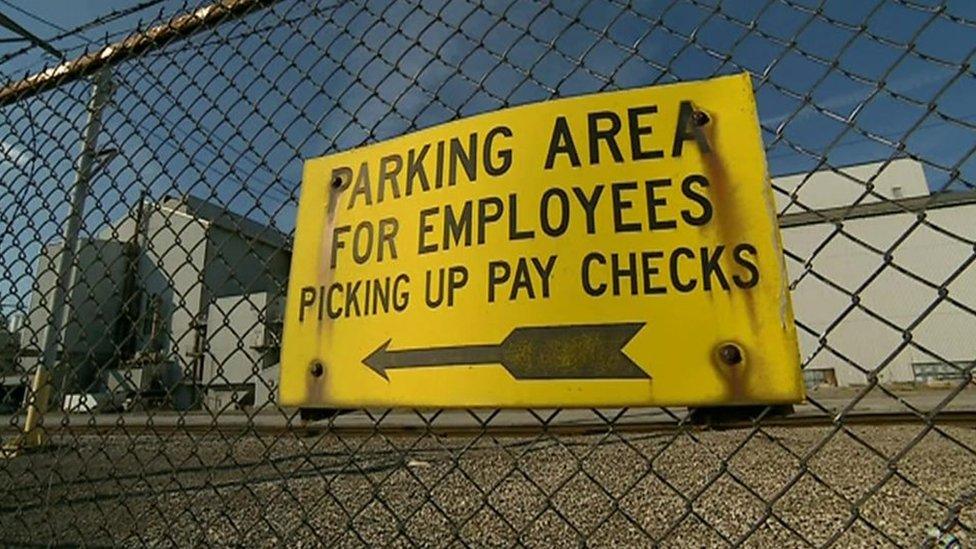Election 2016: Obama woos voters in ‘Junkyard Dog’ country
- Published
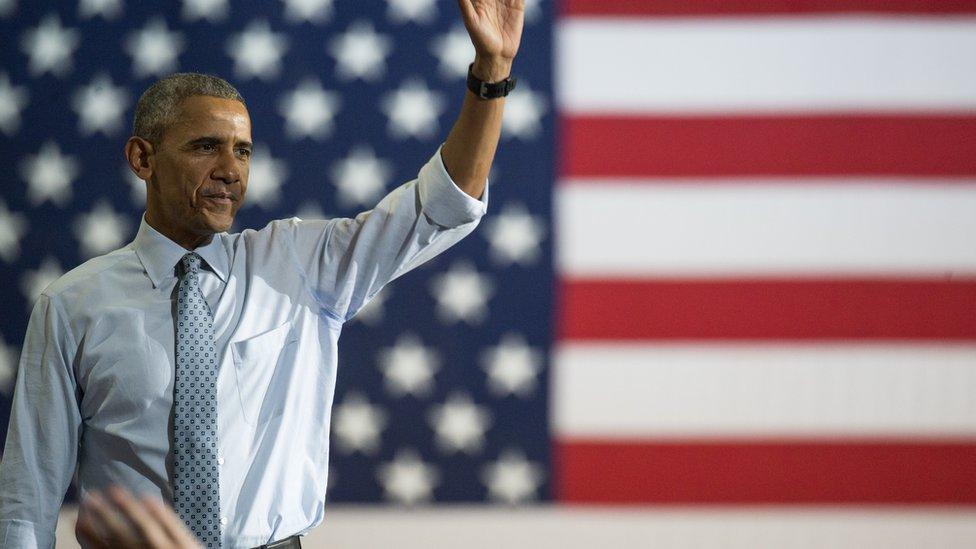
US President Barack Obama, shown in Ohio, spoke about his candidate
With less than a week to go before the election, the fate of the nation comes down to a few states and their voters. In Ohio, US President Barack Obama makes a last-ditch effort to win.
Everything seemed OK in Bexley, located on the east side of Columbus. On Tuesday Obama told students on the campus of Capital University to go out and vote. They promised they would - and chanted "Hillary".
"You had something caffeinated," he told the crowd. "Because you seem fired up."
He described Hillary Clinton as "the next president of the US". Then he added: "But make no mistake. This is not something you can take for granted."
He mentioned the name of the Republican nominee, Donald Trump. People booed. "Don't boo. Vote," Obama fired back. "Booing doesn't help. Voting helps."
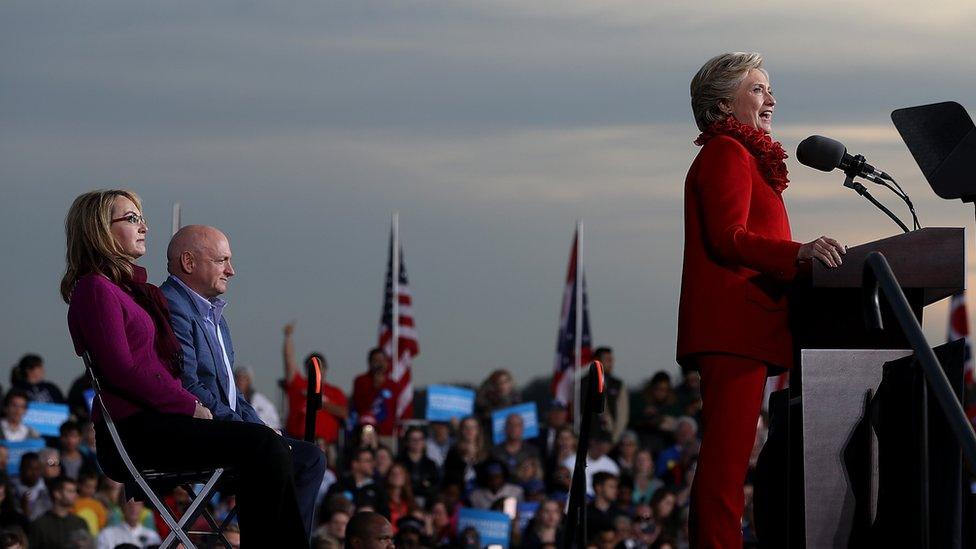
Hillary Clinton shown in Ohio last month, fights for the state's 18 electoral votes
Many people outside the US - and some in the US, too - seem convinced that Clinton has already won - or that Trump has. According to a recent poll, it's virtually a tie. The most recent ABC News/Washington Post poll, external finds them tied at 46% each.
But national polls hardly matter. What counts are a handful of states - places rich in electoral votes. The campaign is now being fought city by city, suburb by suburb, as the two candidates compete in battleground states such as Ohio, North Carolina and Florida.
Election 2016: The race for battleground states
In Ohio, Clinton spoke recently at Kent State University. Her husband, Bill Clinton, campaigned over the weekend in Columbus.
Trump spoke at three different Ohio rallies in one day last month. He railed against Clinton and her husband, saying that their economic policies have cost people in the state dearly.
"Every time you see a closed-out factory or wiped-out community here in Ohio," Trump said, "The Clintons were really involved."
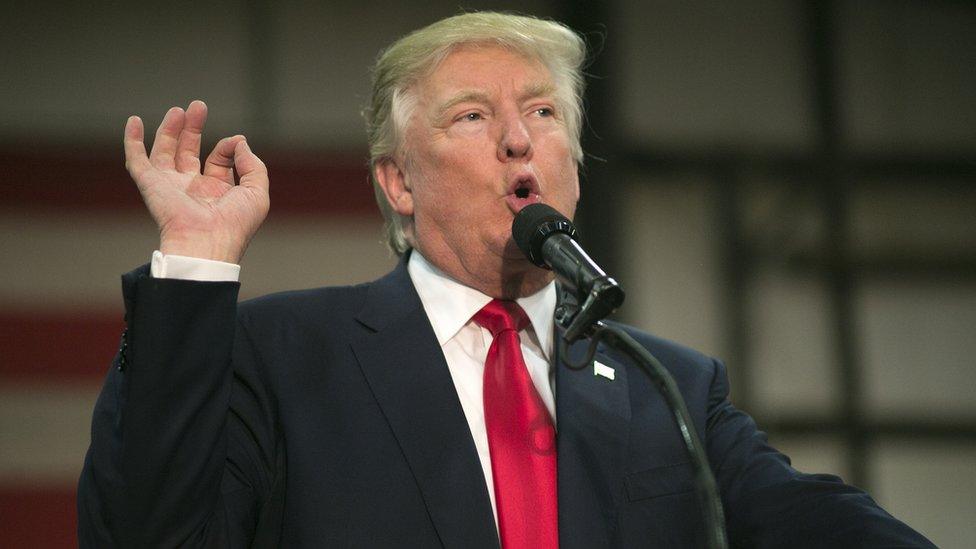
Donald Trump, shown in Ohio, attacked Clinton and trade deals
Obama is a seasoned campaigner - and motivated. He'll be on the road a lot before the election, "warning people against complacency", White House Spokesman Josh Earnest said.
"His legacy is at stake," Earnest told me and other reporters on Air Force One on the way to Columbus. Earnest explained that the president wants to make sure the work he's done in office won't be dismantled during a Trump presidency.
The state of Ohio has 18 electoral votes, and it's still in play - though it tilts towards Trump. He's 11 points ahead, according to the polling analysis website FiveThirtyEight, external,.
If Trump fails in Ohio, he's likely to lose the election.
Obama came here to Bexley in order to keep that from happening.
He told people at the rally not to act like things were normal. He reminded them how it important to was to defeat Trump.
"He says he'll be his own foreign policy advisor because he's got a good brain," Obama told them. "Who talks like that?"
Obama had a receptive crowd in Bexley, which was named after a London borough. It's "a bit more liberal" than other parts of Ohio, Mayor Ben Kessler told me. He studied at University of St. Andrews, he said, and is married to a Briton.
About 14,000 people live in Bexley, and one-fifth of them are students. Many wore Clinton T-shirts at the rally ("Run like a girl," proclaimed one shirt). They have posted her campaign signs in town. They may not all like her, but they're supporting her.
One of their professors, Sean Walsh, who teaches political theory at Capital University, said he likes Bernie Sanders. Still Walsh voted for Clinton - early.
"I would probably vote for my cat - I would definitely vote for my cat - over Trump," Walsh said. "My cat has more humanity."
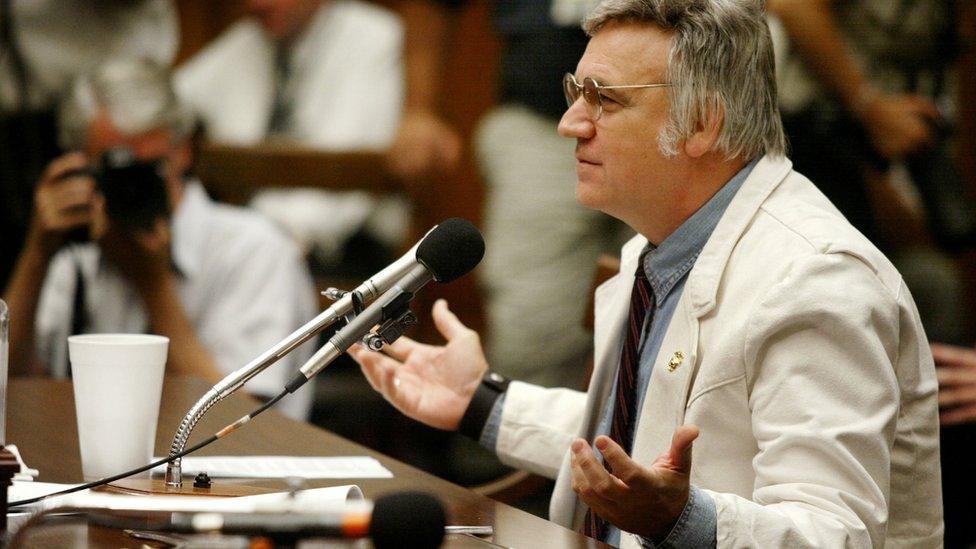
Some in Ohio compare Donald Trump to James Traficant, a colourful congressman
Feelings about Trump - and the yard-sign ratio - were different in other suburbs, however. In Dublin, which is located on the northwest side of Columbus, Trump has "a 10-to-one advantage", according to Paul Baker, an electrical engineer and a Tea Party activist.
Mark Mangie, the treasurer of Mahoning County Republicans, said that Trump reminded him of the late James Traficant, a Democratic congressman from Ohio who spent years in prison for racketeering.
"He used to refer to us as junkyard dogs," Monroe said, describing Traficant. Monroe now uses the term as an affectionate term, one he's adopted for him and his friends. Like Trump, Traficant got people riled up - and was popular among certain groups.
The state of Ohio is mostly white (80%) and working class, and more than half of those who vote here do not have college degrees. Between 2000-2010, the state lost about 600,000 private-sector jobs, mostly in the manufacturing sector.
"You've got a lot of frustrated people," said Greg Lawson, an analyst at a conservative think tank, the Buckeye Institute, said - and a whole lot of Trump supporters.
Republicans in nearby Fairfield County told me they're confident about the election. Mike Lyons, who works part-time in the Fairfield County Republican headquarters, said people come to their office and ask for help.
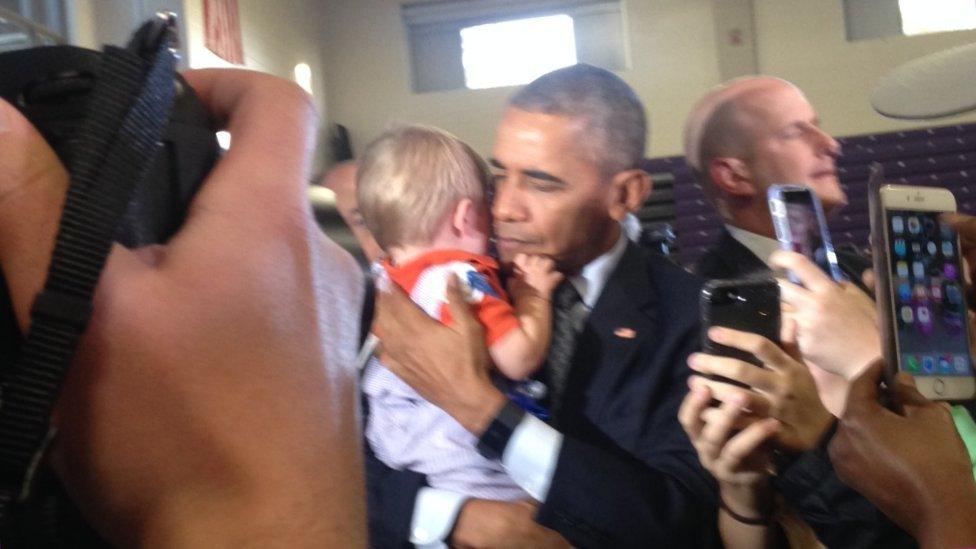
Obama, holding Brooks Breitwieser, told people in Bexley to vote (or get their parents to)
"They say, 'I've voted my whole entire life as a Democrat, and I just can't vote for Clinton,'" Lyons told me. "We're like, 'Hey, that's all right,' and we give them a Trump sign."
Tom Zawistowski, a Tea Party activist in Portage County, said that he was sceptical about the president's chances at convincing anybody - even students - about the merits of Clinton.
"They know what WikiLeaks is," Zawistowski said, referring to the students and the email scandals that have plagued Clinton. "She's going to have a tough time winning the state of Ohio."
US election: how Clinton's email saga began
These men had a point: many people in Ohio - as well as the rest of the country - have had a hard time coming to terms with her as a candidate.
As people stood in an auditorium and took pictures, Obama told them what kind of leader she'd be. "She believes that we can summon what's best in each of us - and make the country better for all of us" he said.
People in the auditorium cheered. But the results - as Clinton and Trump both know - are still up in the air.
Follow @Tara_Mckelvey on Twitter.
- Published31 October 2016
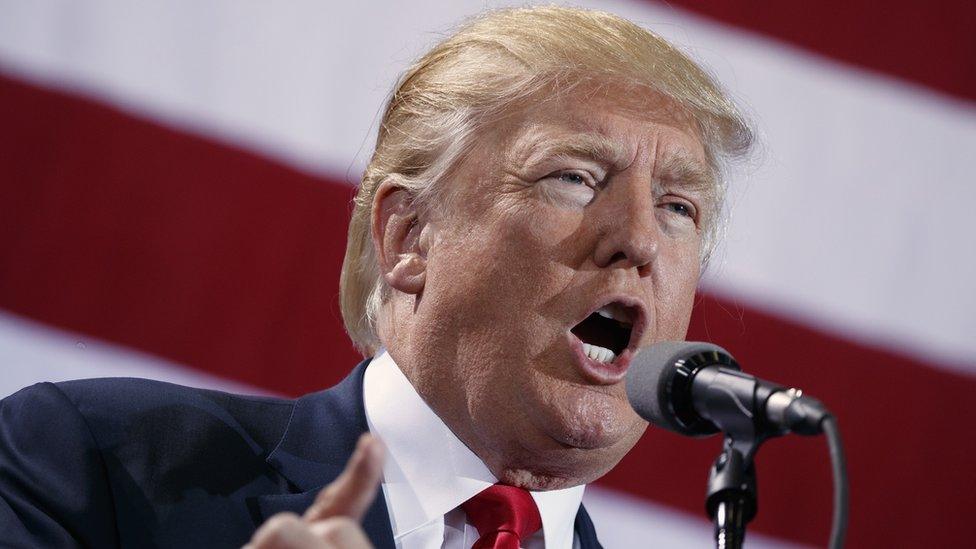
- Published16 October 2016
